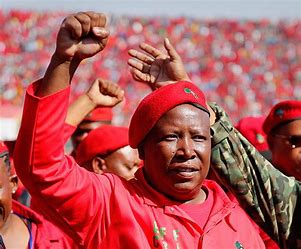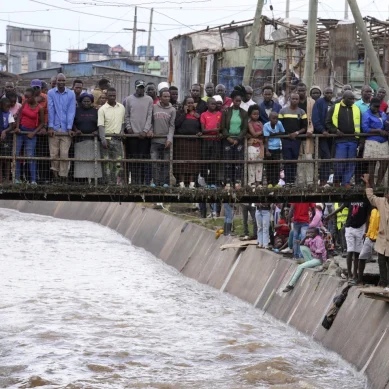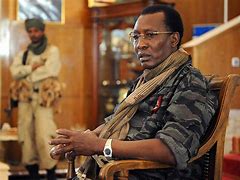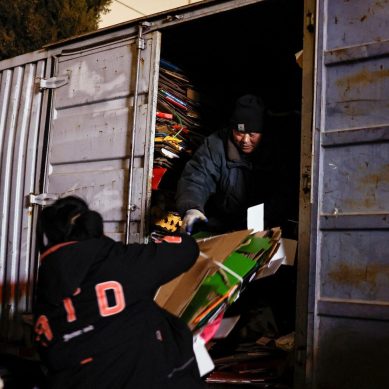
Four African countries are preparing responses to planned protests led by opposition politicians, which are likely to test civil liberties and security in eastern, western, southern and northern economic blocs.
South Africa, Kenya, Tunisia and Nigeria may all see running battles with the police or peaceful demonstrations to express dissatisfaction with the government’s handling of economic and political issues.
Their planners differ greatly. However, the Monday, March 20 date may go from coincidental to historic. In Kenya, opposition leader Raila Odinga has rejected government intimidation after announcing Monday the start of protests to ‘resist’ what he calls a high cost of living, which he blames on government inaction.
He claims that the March 20 protests will be the “mother of all protests,” bringing the country to a halt. He claims the protests are being held because President William Ruto’s administration has refused to allow an audit of the Independent Electoral and Boundaries Commission (IEBC), which declared him winner of the August 9, 2022, presidential election.
“William Ruto and [Deputy President] Rigathi Gachagua cannot intimidate us. “I want to tell them that I fought for the country’s second liberation,” said the opposition leader, who lost his sixth presidential election last year to Dr Ruto but continues to reject the results.
“The two cannot understand what I have gone through. In 1983, I was arrested, charged in court, and sentenced to prison, but I was released due to a lack of evidence. “I fought for democracy and was imprisoned for eight years while some of them were still breastfeeding,” Mr Odinga said.
“We feared the lion (Moi), but we uprooted its teeth. “I am ready and willing to pay the ultimate price while fighting for Kenya’s liberation,” Mr Odinga added, to applause from the enraged crowd.
Kenya’s government has stated that it accepts peaceful picketing but will prosecute violators.
In South Africa, President Cyril Ramaphosa issued a stern warning to opposition leader Julius Malema ahead of the planned national shutdown by the Economic Freedom Fighters (EFF). Mr Malema’s EFF has called for a national protest on Monday, March 20, 2023, that is supported by the South African Federation of Trade Unions (Saftu).
The party is launching the shutdown in order to pressure President Ramaphosa to resign and to demand an improvement in the country’s energy crisis. President Ramaphosa, on the other hand, has taken the planned action seriously and has directed law enforcement to deal decisively with “any lawlessness” that occurs during the shutdown.
Last week, during Tanzanian President Samia Suluhu Hassan’s state visit, he addressed the media at the Union Buildings in Pretoria. He emphasised that they would put a stop to any rebelliousness or anarchy.
“If you are going to restrict the rights of other people, coerce, intimidate and unleash violence, our security forces are going to defend the people of South Africa because we will not allow anarchy and disorder to prevail in this country. So, we’ll see what happens,” Ramaphosa said on national television.
“Our politics is fractious, divided, and [we are] going to the elections next year. Many parties, when you go to elections, start positioning themselves because they want to win the vote, and they will often position themselves in a way that is completely against the governing party.
“South Africa is a constitutional democracy governed by the rule of law. Only through popular vote can a regime be changed. It cannot happen through anarchy and wreaking havoc on a country.
“[The right to protest] is deeply embedded in our constitution, and it is a right that we South Africans fought for and won so that South Africans can protest against [what they disagree with], but that right is not absolute.”
South Africa’s president reiterated that no one in the country has the right to do whatever they want.
“That right is a limited right, and it’s not underpinned by violence, and it is not a right that allows anyone to embark on anarchy or disorder. It is a right that says you must respect the rights of others.”
Mr Malema, the fiery EFF leader, has fired back at the president, declaring that the planned protests across South Africa will be peaceful. But he insists that anyone trying to disrupt it “would meet their maker”.
Similar scenarios may exist in Tunisia, where the high cost of living, insecurity and impunity has enraged the populace. Activists planned a massive protest on Friday that would last until Monday.
Protest organisers from the National Salvation Front group planned to protest outside Tunis’s Municipal Theatre every afternoon to force a response from President Kais Saied, who is accused of worsening people’s economic well-being.
Supporters of Nigeria’s People’s Democratic Party candidate Atiku Abubakar protest in Abuja on March 6, 2023 over the results of the presidential and general election.
Nigerian protests could touch on allegations of electoral fraud.
Bola Tinubu of the ruling All Progressives Congress won the presidential poll last month but opposition groups allege vote malpractices.
Nigerians have also been protesting against fuel shortage and currency swapping difficulties. A Supreme Court ruling last month ordered the government to delay phasing out old curre











